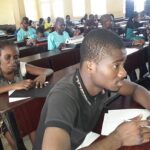Professor Garba Ibrahim Sheka is the chairman of the Kano State Independent Electoral Commission (KANSIEC). In this exclusive interview, he spoke on the January 16 local government election in the state, autonomy, calls for the abolishment of state electoral commissions in the country amidst widespread allegations that governors interfere in the electoral process, among other things.
In recent years, local government elections in Nigeria have been generating controversies, why do you think most governors prefer using sole administrators?
Interestingly, there is a court ruling that cancelled the use of sole administrators or caretakers to run local government areas. There was a notice from the Supreme Court that each state must conduct local government elections henceforth. According to the notice, if any state doesn’t comply, its local government grants would be stopped.
- ‘I was called a ritualist for seeking waste fabric’ – Abandy Faith
- Lekki shootings: Army rejects Lagos panel’s summons for General, Colonel
What is your view on local government autonomy?
It is a good idea. The local government is a sort of ingredient for development. If you strangle the local government, there is no way the grassroots can develop. It is the closest tier of government to the people; that is where the impact is felt directly.
Sometimes, if the Federal Government makes a policy, it takes time before it reaches the beneficiaries. I happened to be a sole administrator in one of the local governments in the past, and I know that sometimes, as a chairman you have to evacuate somebody’s latrine. If his daughter gets admission into school, you have to buy mattress and bucket. The impact is just direct, unlike the federal or state government. Sometimes they (state and federal governments) will spend millions and people will say they are not feeling it. For that, there should be full autonomy for the local governments.
Recently, there have been calls to abolish state electoral commissions, what is your take on that?
I am not in support of that. Sometime ago, when the Association of Chairmen of State Electoral Commissions paid the chairman of the Independent National Electoral Commission (INEC) a courtesy visit, he told us that he was not in support of transferring local government elections to the commission. He said that in Nigeria, people must say something negative about whatever election you conduct.
He said they should allow him deal with the burden he faced, rather than add more. He, however, said there was the need for electoral reform.
Don’t you think the calls are gaining momentum because of the interference of state governors in the local government electoral processes?
In my state, right from our request for fund, up to the announcement of results, there has never been a time when the governor interfered with our affairs. I and my commissioners decide and execute our programmes. But things are not the same in other states.
Certainly, the system has been abused. Most elections are a one party affair. It has become a tradition that opposition parties in most of the states boycott the elections because they are afraid of spending their money without winning anything. Of course, this is scary. I usually wonder how the ruling party would win everything in a state.
In the last election we conducted, the ruling party cleared all the seats, but that is because all the major opposition parties boycotted it. Right now, we have only 11 parties that showed interest to participate in the election. Last time, some parties boycotted the exercise.
How does your office intend to address the fears from opposition parties?
The fears have been reduced. We gave them assurance that whoever wins would be declared. In fact, we are going to take the INEC style and declare results at collation centres. I urge them to close the gap. We will carry them along. We will call them to follow us to witness whatever we are distributing, to avoid diversion.
You budgeted N2.3b for the election; looking at the economic reality now, don’t you think this is too much?
Honestly, we squeezed ourselves to make it N2.3billion. It would have been more than that. Electoral processes with this kind of democracy we adopted are expensive. If I were to submit a memorandum to this constitution review, I would have suggested a different system for Nigeria. This is because apart from the cost of running elections, the cost of running government itself is expensive.
The amount the INEC is spending is exactly what we will spend here in Kano because we have over 11,500 polling units; and there must be four people at each polling unit. Again, we have to print the same ballot papers. And you know that this time around, things are expensive. Also, there’s inflation and other factors.
God so kind, this time around we didn’t patronise the contractors that would go abroad and print. We want to avoid what happened last time, where our contractor went to China to print the ballot papers and couldn’t deliver them on time. He was able to deliver the materials on the eve of the election.
The common man in the street may still want to know what you are going to do with that money.
The common man will know that the election materials are not free. We will print and buy other materials. However, what consumes money most is the ad-hoc staff. And we have to recruit over 50,000 ad-hoc staff, including supervisors and returning officers who will declare the results. The least we pay is N20,000. For the ballot papers, the number of recent registered voters in Kano is 5.5million. We cannot just print few ballot papers because people are not coming out for local government elections. What if they change their minds and come out to vote for their candidates?
What is your plan towards electronic voting?
It is expensive, but I am sure we are on the way. We were in the United Kingdom last time before we conducted the election. When the Europeans came, we interacted with about 10 different companies and they brought their machines, very excellent. As you are voting, it is counting, and as the last person finishes voting you will know the results. We just took the one that is moderate for us and it was estimated to cost Kano about N25billion to be able to buy one for every polling unit. We understood that the machines work for only 10 years.
We are Nigerians, so using machines may not necessarily prevent people from engaging in corruption if they want to. I know the machines can be an efficient way to do things quickly, but with the issue of corruption and malpractices in Nigeria, I don’t think the machines can help us achieve our aims.
What are your challenges as the election approaches?
Not quite much; but the first one is this recruitment we are doing now. The more good people you have, the better the election processes.
During the last election there was an allegation of child voting in Kano. We attributed that to the bad element within the ad-hoc staff. You know these ad-hoc staff come from different walks of life.
Another challenge is the number of registered political parties. The INEC gave us 18, but we are scared because immediately after the 2019 elections, the commission deregistered some of them. Some of them went to court and got orders for reinstatement. When we asked the INEC, they said some of them were reinstated but they appealed. Now, even when they come here, we cannot take such court orders from them, we are taking orders from the INEC.
Also, one of the challenges is the late arrival of election materials, but we have taken care of that. Another one is the mode of payment of our ad-hoc staff. You know we recruited 88 electoral officers and their assistants and dispatched them to the various local government areas to recruit other ad-hoc officers that would work there.
We just gave them the number of polling units and told them the number of people they would employ for each polling unit. We gave them training so that they would train other people.
Unfortunately for us, we thought we would use the same method for payment. It is a very serious challenge to employ someone and he complains of not being paid after one month, while you know you already released money for payment. So, this time around, we decided be a little bit cashless. This way, we will pay all our staff through their banks so that the money will go directly to them. Even the INEC has this problem.

 Join Daily Trust WhatsApp Community For Quick Access To News and Happenings Around You.
Join Daily Trust WhatsApp Community For Quick Access To News and Happenings Around You.


